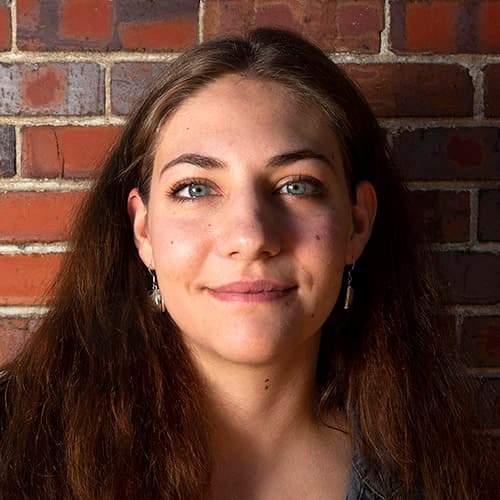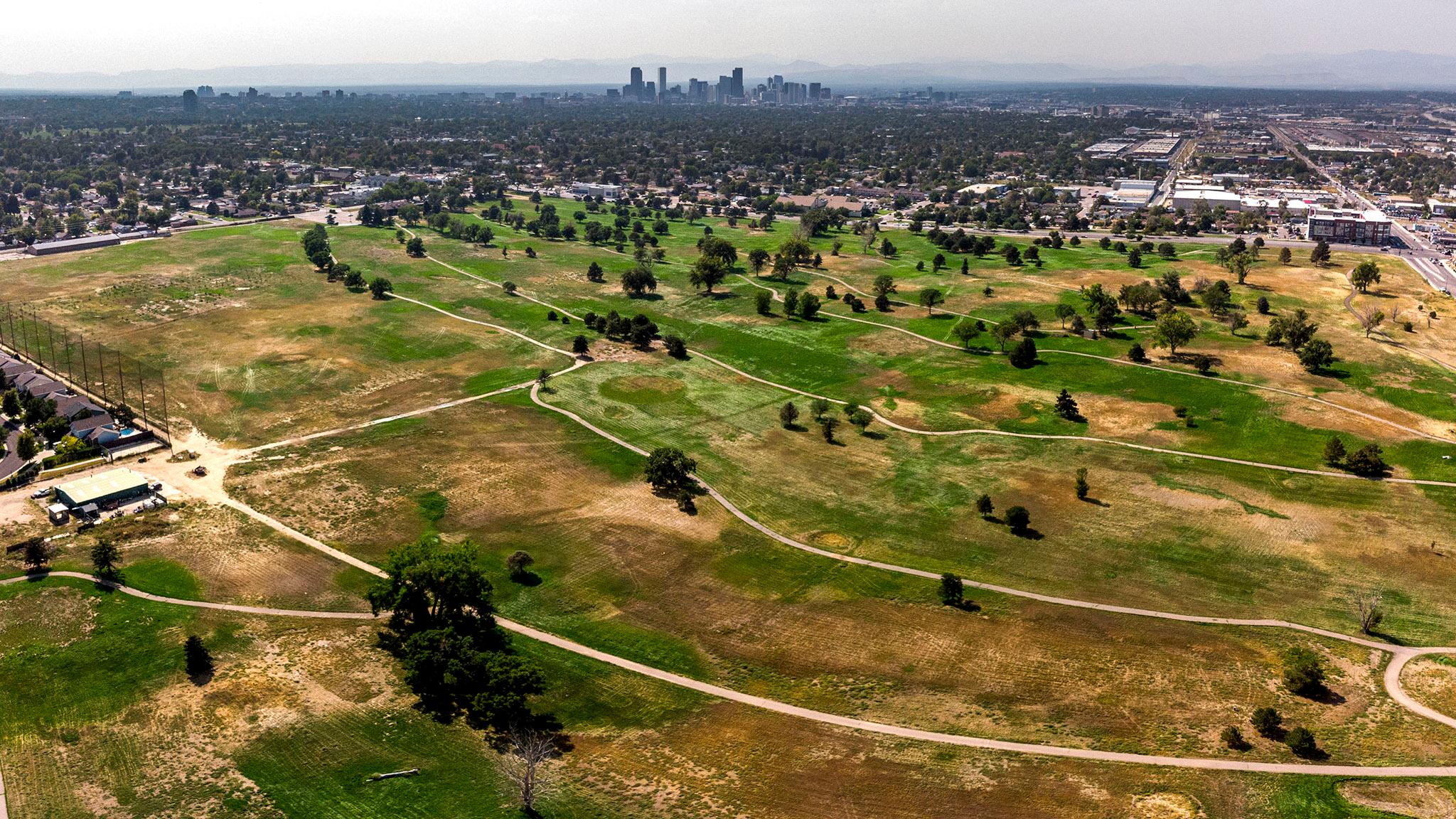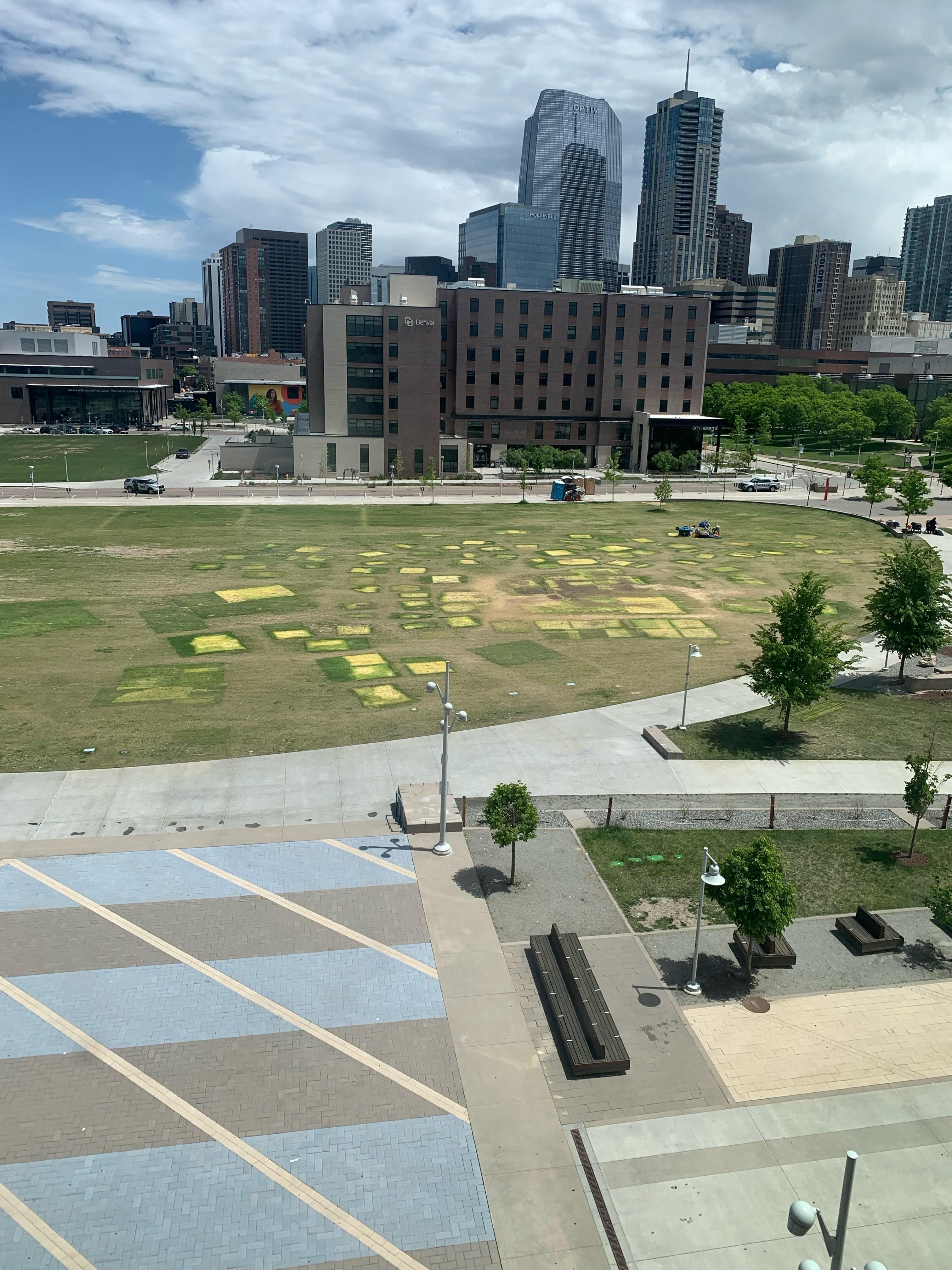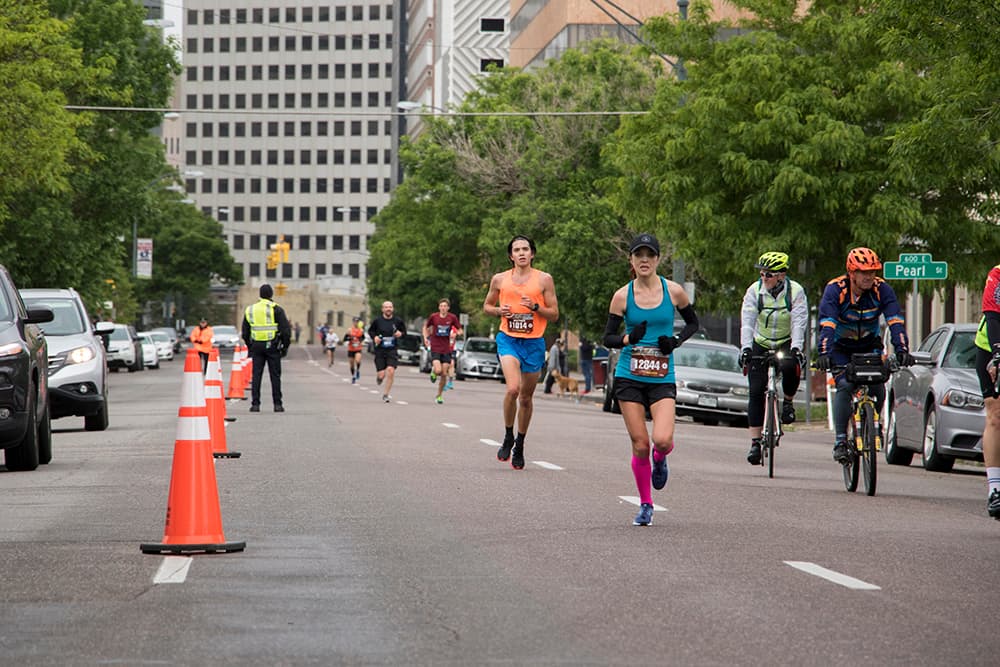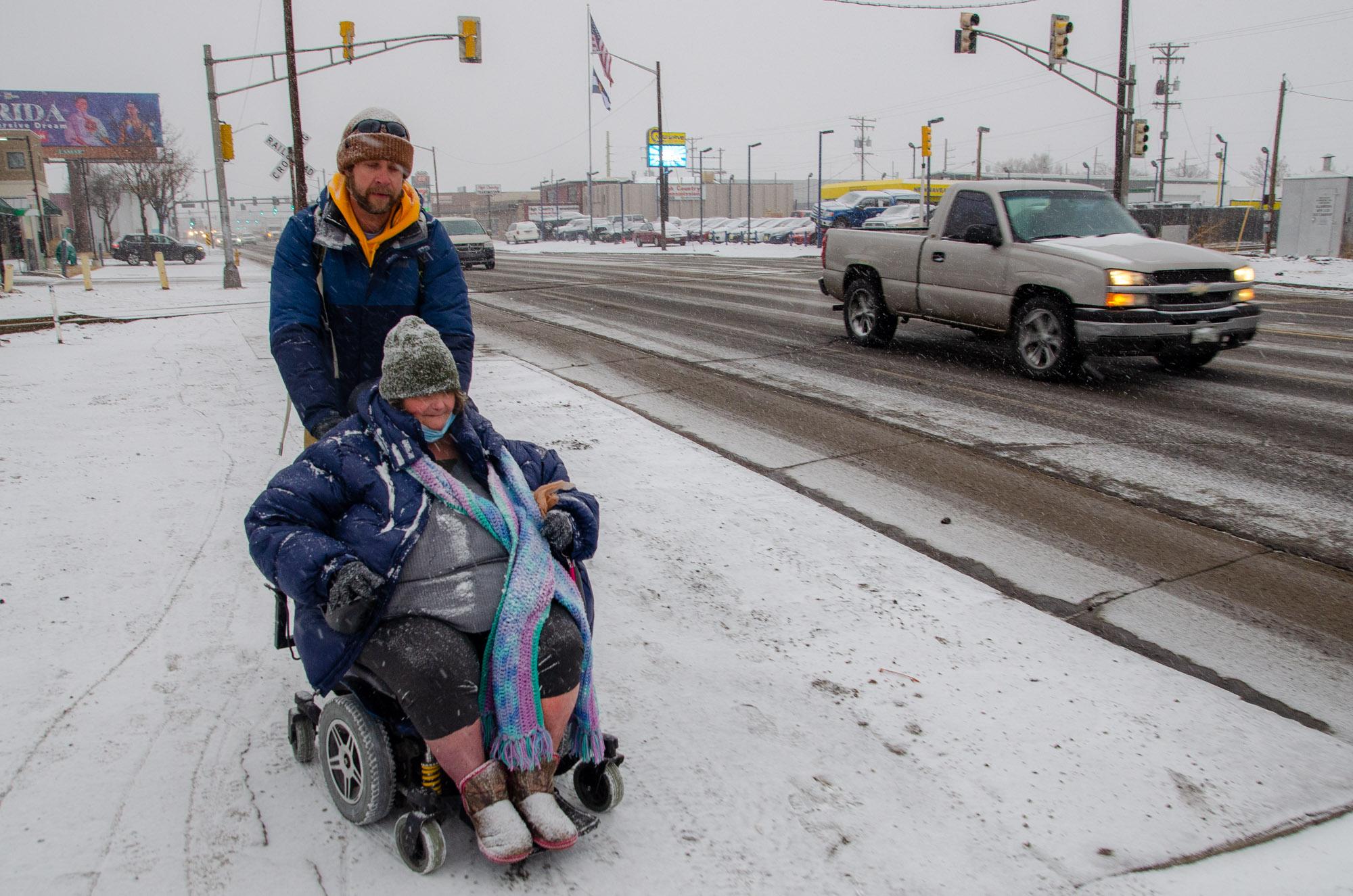In November, the city released a "2021 Vision Summary" on the development process for the 155-acre Park Hill Golf Course in Northeast Denver. The development of the land, which has been under a conservation easement since 1997, has been a hot-button issue for community leaders, developers and nearby residents for years.
The document revealed the results of a survey from within the ranks of the 27-member Park Hill Golf Course steering committee meant to be leading the process. The results of the survey showed two-thirds of members are in favor of some development (although only 21 members participated).
Another six members were against any development at all, while one person was in support of complete development of the land. No one wanted to preserve the 18-hole golf course. This means that, even if all seven members who did not complete the survey were anti-development, the majority of the steering committee would still be in favor of creating a mix of development and open space.
Save Open Space Denver, the main group opposing development of the golf course, partnered with five members of the steering committee to communicate their concerns with the 2021 Vision Summary in a written statement Monday.
Members of the steering committee said their own group was "pushing the developer's agenda," accused the city of having a "clear and proven bias" in favor of development, and claimed Community Planning and Development was "consciously ignoring, sidelining, and dividing residents" in their process. They asked that their comments be included along with the 2021 Vision Summary on the city's website.
"It's the same people who tried to stop and disrupt the process from the very beginning," Imam Abdur-Rahim Ali, another steering committee member, said of those who put out the statement Monday. "They've been complaining, but that doesn't mean that the process wasn't trustworthy." He added that the group's meetings have been tense for a while.
Meanwhile, developers Westside Investment Partners and the Holleran Group put out a quiet statement in support of the summary.
The report did highlight the common ground between the two factions in the steering committee. They both agreed on the community's unmet needs, including park space, explicitly defined affordable housing and more food options for nearby residents. They disagreed on the type of food to be made available (for example, building a grocery store versus creating a community garden), the need for brick-and-mortar development and how much trust should be given to the Westside and Holleran developers.
The report also acknowledged the fundamental disagreements surrounding the conservation easement. Advocates have often highlighted the "perpetuity" of the original easement and the rigor of new state statutes to defend its legitimacy.
The city, meanwhile has focused on the unique deal that led to the easement's creation to justify possible amendments. The city's website says the easement does "not function to preserve the land for natural habitat protection... As such, the city believes there is a clear legal path under state law that would allow for modifications to be made."
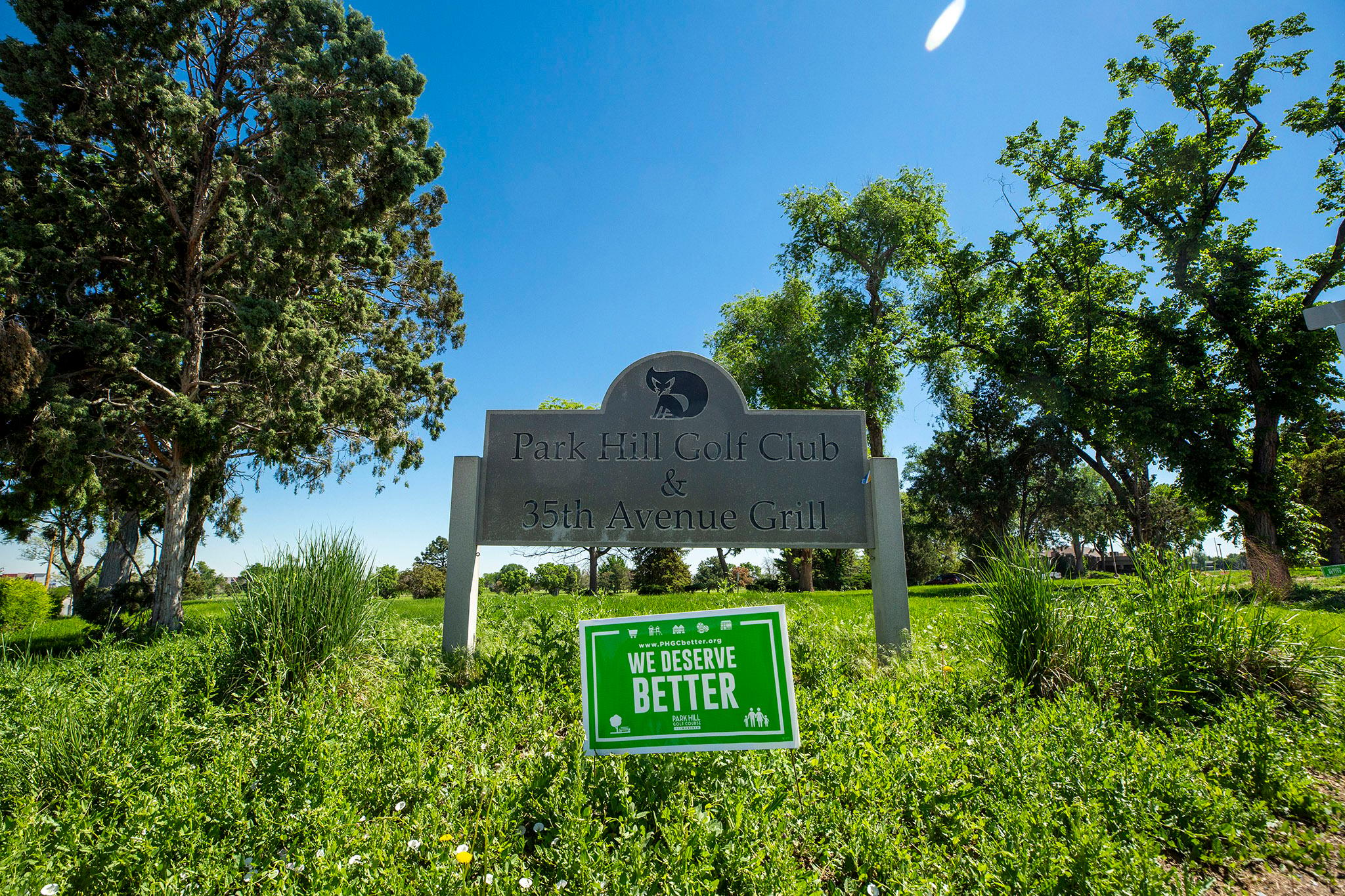
Assessing community wants continues to be a thorny and convoluted process.
The city released another report on Monday, just hours before SOS Denver teamed up with steering committee members to denounce the entire visioning process. The latest report is called the "Park Hill Golf Course Prevailing Vision" (not to be confused with the "2021 Vision Summary" discussed above).
The report outlined residents' main wants, including creating a large park and community gathering place as well as another committee to oversee development. Other priorities included preserving and expanding tree cover to combat heat island effects, adding recreational sports facilities, and including affordable housing options.
The report mostly hinged on the results from city-led community outreach, as well as a survey conducted by a marketing firm paid by the city. The survey showed that 70% of nearby residents were in favor of creating a mixed-use development. As we previously reported, some open-space advocates wondered whether a survey regarding development was fair considering the land is still under an easement. Other advocates labeled it a "push-poll" because the first question forced respondents to choose a preference between "golf" and "all other uses," only later giving folks a chance to vouch for other open space.
However, previous survey results have shown a similar proportion of residents in nearby neighborhoods open to development. The issue is further complicated by the results of last month's election which showed voters wanted another layer of protection against lifting the conservation easement through the form of a citywide vote.
Interestingly, the neighborhoods near the golf course were more in favor of the citywide vote than the rest of Denver, according to finalized voting maps. Overall election turnout was exceptionally low, especially among younger demographics.
It is hard to discern how, exactly, local residents feel about development on the land, to say the least -- but both the developers and open space advocates are quick to cherry-pick the metrics that support their sides.
Westside still has until at least 2022 to get development plans approved, and now only with the support of a citywide vote. If they are unable to reach approval before the three-year timeline they set when they bought the land in 2019, the city could require Westside to restore the golf course.
The city, however, is open to continuing the visioning process.
"We look forward to continuing to engage our communities throughout 2022 to provide more detail on these priorities and ultimately bring a well-thought-out proposal for Denver City Council and Denver voters to consider," Laura E. Aldrete, executive director of Community Planning and Development, said.
If the plan makes it over those hurdles, it will move on to the city's large development review process.
This story was updated to include statements from steering committee member Imam Abdur-Rahim Ali.
